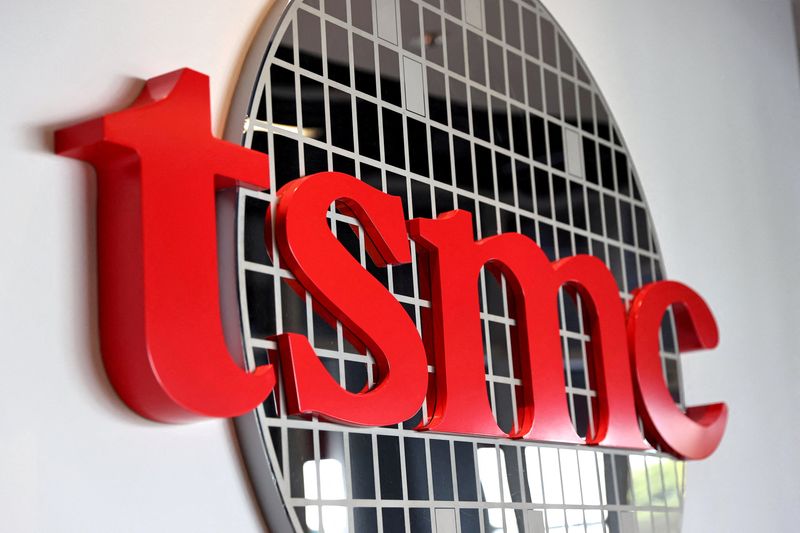By Alexandra Alper
WASHINGTON (Reuters) - Democratic Senator Mark Warner criticized the Biden administration for "apparent lax monitoring" of TSMC following revelations a chip produced by the Taiwanese chipmaker ended up in a product made by China's heavily sanctioned Huawei.
In a letter reviewed by Reuters, the influential lawmaker also took the government to task for "repeated leadership failures" in enforcement of U.S. export rules after TSMC informed the U.S. that one of its chips had been found in a Huawei AI processor, a possible violation of U.S. restrictions on the Chinese telecommunications equipment maker.
"TSMC’s production of chips for Huawei has serious implications for U.S. national security," Warner, who chairs the powerful Senate Intelligence Committee, said in the letter to President Joe Biden dated Oct. 30.
"I urge you to swiftly take immediate steps to assess and strengthen the efficacy of existing controls," he added.
The White House and Huawei did not respond to requests for comment. TSMC declined to comment. The Commerce Department, which oversees export policy, said in a statement that "No Commerce Department in history has been tougher on China." It touted its moves to add over 400 Chinese companies to a trade restriction list, "extensive" new controls and a record number of convictions last year. "We will continue to use all of our tools — administrative, criminal, and regulatory — to safeguard U.S. national security," the statement added.
The Chinese Embassy in Washington said it opposes U.S. export restrictions and urges the U.S. to "stop overstretching the concept of national security and abusing the state power to suppress Chinese companies."
The letter, coming from a fellow Democrat, illustrates the growing, bipartisan concern among lawmakers that Washington is not taking sufficiently aggressive action to halt the technological advance of Beijing. The U.S. fears China could use the technology to bolster its military capabilities.
Republican congressman John Moolenaar, who chairs the House of Representatives Select Committee on China, said last week the TSMC chip represents "a catastrophic failure" of U.S. export control policy, and asked for immediate answers from Commerce and TSMC about the scope of the "disaster."
Huawei was added to a trade restriction list in 2019 amid fears its telecoms equipment could be used to spy on users, which Huawei denies. The restriction means U.S. and foreign suppliers have to obtain a special difficult-to-obtain license before shipping to Huawei.
But Huawei unveiled a new phone last year powered by a sophisticated chip, seen as a symbol of the China's technological resurgence despite Washington's best efforts to cripple its capacity to produce advanced semiconductors.
The U.S. has also imposed a raft of measures aimed at restricting the shipment of advanced GPU chips - which enable artificial intelligence (AI) - to China to hobble its AI capabilities, which Washington fears could be used to develop bioweapons and launch large-scale cyberattacks.

The TSMC chip ended up in Huawei's Ascend 910B, the company's own GPU product, Reuters reported, apparently fueling Huawei’s efforts to develop a competing ecosystem for AI, Warner wrote.
"This recent incident – and (the Commerce Department's) apparent lax monitoring of TSMC’s compliance – raise questions" about whether TSMC is observing the Commerce Department's limits on the computing power of AI chips that can be shipped to China, Warner added.